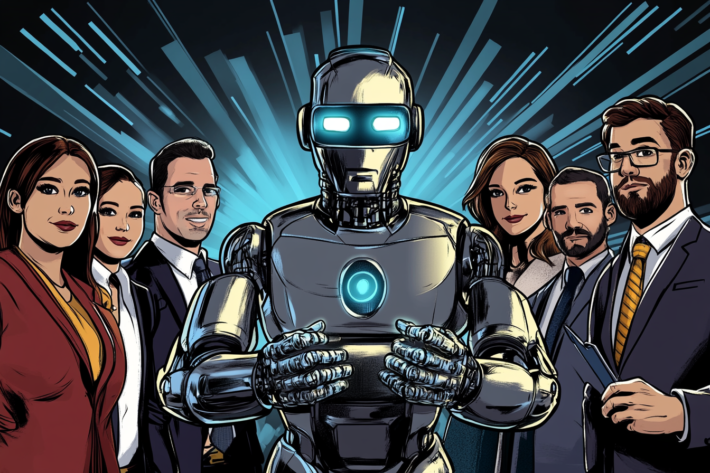In the digital era, the future of leadership is undergoing a profound transformation as technological advancements, particularly in artificial intelligence (AI) and automation, are redefining traditional leadership roles. This article delves into the ways in which AI and automation are reshaping leadership, decision-making, and team management, and explores the challenges and opportunities this presents for the future of organisational leadership.
The Impact of AI and Automation on Decision-Making
The integration of AI and automation technologies is revolutionising the decision-making processes within organisations. With access to vast amounts of data, leaders can now make more informed and data-driven decisions. AI’s ability to analyse complex patterns and trends at incredible speeds is empowering leaders to strategise, establish goals, and allocate resources more effectively, propelling decision-making into the realm of data-driven insights and predictions.
Transformation of Leadership Roles in the Digital Era
AI and automation are fundamentally altering the role of leaders within organisations. With routine tasks increasingly automated, leaders are liberated to focus on more strategic and creative aspects of their roles. This shift in responsibilities demands a new skill set, emphasising the need to effectively leverage technology, develop cross-functional teams, and foster innovation within organisations. The traditional hierarchical model of leadership is giving way to a more collaborative, network-based approach, necessitating adaptation to a decentralised and agile environment.
Revolutionising Team Management with AI and Automation
The dynamics of team management are being reshaped by the integration of AI and automation. AI-powered tools offer the opportunity to build more effective and efficient teams by analysing team dynamics, identifying areas for improvement, and predicting potential conflicts among team members. Virtual assistants further aid leaders in managing workloads by scheduling meetings, organising tasks, and providing real-time insights and recommendations. This transition towards AI-enabled team management emphasises the need for leaders to integrate technology effectively and cultivate a culture of continuous learning and adaptation.
Challenges and Ethical Implications of AI Integration
Despite the opportunities presented by AI and automation, leaders must navigate challenges associated with biased decision-making processes and potential job displacement. AI algorithms have the potential to perpetuate existing biases, raising ethical and legal concerns. Furthermore, concerns regarding job displacement and the redefinition of traditional work roles require careful management to mitigate their impact on employee morale and organisational culture.
Conclusion: Embracing a Technologically Driven Future of Leadership
The future of leadership is undeniably shaped by rapid advancements in AI and automation. These technologies offer leaders unparalleled access to data, transform the nature of leadership roles, and have the potential to revolutionise team management practices. However, successfully integrating AI and automation into leadership practices will require a balance between leveraging technological advancements and maintaining a human-centric approach to leadership. This technologically driven future demands a new set of skills and competencies from leaders to navigate the complexities of the digital era while adapting to the evolving nature of leadership roles.
By addressing the impact of AI and automation on the future of leadership, organisations can prepare leaders to embrace these technological advancements and lead their teams effectively in the digital era.

